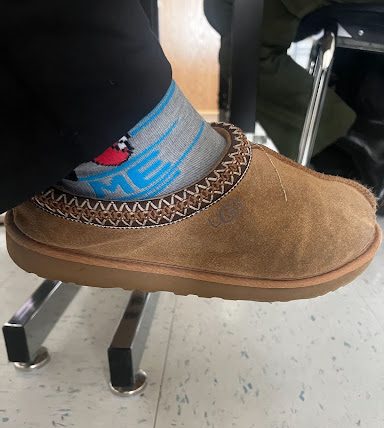Where were you when Kennedy was killed? Where were you when the Berlin Wall fell? Where were you when Nixon resigned? These are all questions that any adult would be proud to answer, but here’s one for high school students: Where were you three weeks ago?
There are some events that will clearly be major milestones in history, markers which will take up the page of a future textbook, and those who experienced them can proudly proclaim they were profoundly shocked when they happened. For our parents, and their parents before them, we can ask them where they were and what they were doing during the Moon Landing, or when John Lennon was shot. But what about our generation? September 11th will surely come up in the conversation, but as a child, how much did that really impact you?
Recalling historical events first hand gives everyone a sense of belonging, an idea that they themselves are a part of history, but to experience this you must comprehend the implications of what has happened. With 9/11, certainly we knew we were attacked, but as 3rd graders, how much did we really understand? Like the Baby Boomers who went through Kent State and Vietnam, what happens to the world now, while we are young adults, is what our generation will get credit for experiencing.
Two dictators of North Africa and the Middle East have fled their countries within the span of a month. Protesters in six countries have taken to the streets in the wake of repressive regimes and terrible economies. As we, the youth of America, watch as the youth of another country throws out their dictator; the question on everyone’s mind should be if this will have an impact.
Certainly these momentous occasions will find a healthy place in Tunisian and Egyptian history textbooks, but what is uncertain still is whether the world will forever changed by what has happened here. Will these be seen as “flash in the pan” rebellions that were quickly swept away by time? Or momentous victories for the common people that will reshape the world?
We don’t know how history will remember these events, but as we take an occasional glance at a news report about the courage of Libyan protesters, let’s make sure we realize that that newspaper article might just be what your grandchildren will ask you about.
While most of the headlines in the newspaper will be hard pressed to get attention tomorrow, the fact is that history is being made all around us. These sweeping revolutions in Egypt, Tunisia and perhaps other countries may be one of those things that our generation will be able to brag about remembering.
If Billy Joel’s “We Didn’t Start the Fire” were to be rewritten 20 years from now, which among the events we’ve experienced would make the list? The destruction of the Space Shuttle Columbia, the 2008 financial crisis, and President Obama’s election are all likely candidates, but how many of those will you be able to say you remember, let alone followed?
Ask yourself, if Forrest Gump were a real person, having experienced every major world event first hand, would he be in Libya right now? Would you?
Perhaps the early months of 2011 will be glossed over in a sentence or two by historians. But if they become something more, if they become significant, if they mark a turning point against tyranny in the Middle East and around the world– when I’m asked about my generation, I’m going to say I watched as the world cheered for Egypt.
As Ferris Bueller once said: “Life moves pretty fast, if you don’t stop and look around once in a while, you could miss it.”






